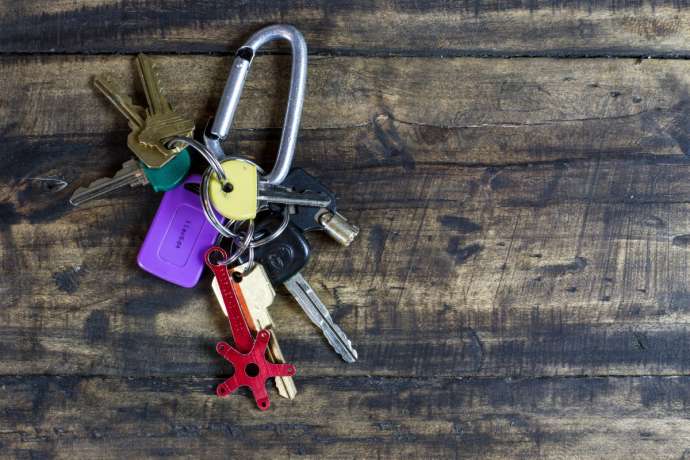STA, 8 August 2022 - Judging by the available statistical data, Slovenia's housing market is not showing signs of cooling just yet although real estate agents say prices have stopped going up mid-year. Still, pundits do not think any major drop in prices is likely over the next six months.
After a record surge last year, prices of residential properties rose by a further 4.1% in this year's first quarter on the quarter before, going up by as much as 19.6% year-on-year, the latest data from the Statistics Office shows.
Prices of existing flats went up by 5.5% quarter-on-quarter and by 19.9% year-on-year as prices of new flats dropped by 8.9% on the quarter before but were still 4.5% up compared with the first quarter of 2021.
Official data for the second quarter are not available yet but Zoran Đukić, CEO of real estate agency Stoja Trade, says selling prices are still high, in particular for well-located newish apartments with an indoor car park. The volume of transactions is level or even a bit above last year's, he has told the STA.
"The growth in residential property prices has slowed down considerably since the beginning of 2022, and has all but stopped rising starting from the second half of the year, that is we are no longer seeing prices going up at the moment," says realtor Alen Komić of ABC Nepremičnine.
In its latest property market report, released in May for 2021, the Surveying and Mapping Authority (GURS) cites preliminary data for 2022 to project a continued growth in the housing market, but also points to signs of a slow-down in the capital Ljubljana, which is seen as the trend setter for the rest of the country.
GURS attributed the record growth in 2021 to excess demand which "continues to be driven largely by low interest rates and the availability of loans and, more recently, increasingly by fears of rising inflation".
Investment in real estate as a rule provides protection against inflation, says Bojan Ivanc, chief analyst with the Chamber of Commerce and Industry (GZS). However, he also says the economic uncertainty and rising interest rates are suppressing demand for high-end properties, in particular those bought as an investment to be rented out.
Additional pressure on the prices comes from a potential change in property taxation that would reduce the return for property owners, Ivanc notes. The new government has announced it will raise tax on rental income from 15% to 25%, the rate in force prior to 2020.
Similarly, Đukić says that inflation is what in principle drives property purchases, "because that's how people protect their assets so that they don't lose value in cash".
Meanwhile, Komić believes that the tightening of credit conditions with higher interest rates and the end of fixed interest rates will have a greater impact on demand than inflation itself, although he agrees that in an inflationary environment it is preferable to invest liquidity somewhere.
Both realtors agree though that the changed conditions have not reflected on the demand in the market yet.
Ivanc believes the key factor that will affect changes in the property market will be conditions on the labour market, that is jobs and wages, and to an extent changes in interest rates. "Considering the volume of property transactions, speculative investments have not been many recently. It is thus not likely that property prices will drop significantly over the next six months," the economist says.
Rents have been going up as well, in particular on the back of a revival of holiday rentals through platforms such as Airbnb and Booking following restrictions on travel during the Covid-19 pandemic.
"Rents have increased by roughly 15 to 20 percent in 2022, especially now in the short-term rental period in and around Ljubljana city centre. There has also been an increase in Airbnb and Booking rentals, which can be seen in the smaller supply of apartments in Ljubljana city centre," says Đukić.
Komić too finds that the scope of short-time rentals has increased and that "quite a few mainly fine properties in good locations (close to the city centre) have been transferred to the short-term rental market (Airbnb, Booking, etc.), making the supply of properties even worse in terms of quantity and quality, while demand has remained virtually the same [...] All of this has, of course, led to a constant rise in rents."
The demand for residential properties had been driven by cheap loans but the cost of those has been going up since late spring and the European Central Bank has now also raised its key interest rates.
After being in the negative territory since 2015, the six-month Euribor rate went positive in early June, standing at 0.667% last Friday. In July, the newspaper Delo calculated, based on usual terms of a variable-rate mortgage loan, that those who took out a 20-year loan in early May would by now see their monthly instalment going up by around 6%.
It is not clear yet if and how the increase in the cost of mortgage loans will reflect on demand. The most recent available data from the central bank shows the volume of new mortgage loans rose substantially for the fourth straight month in May. At 11.7%, the year-on-year growth rate was one of the highest in the euro zone.







